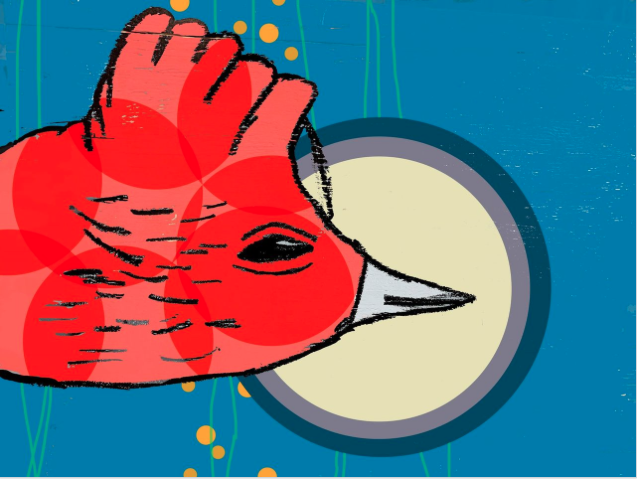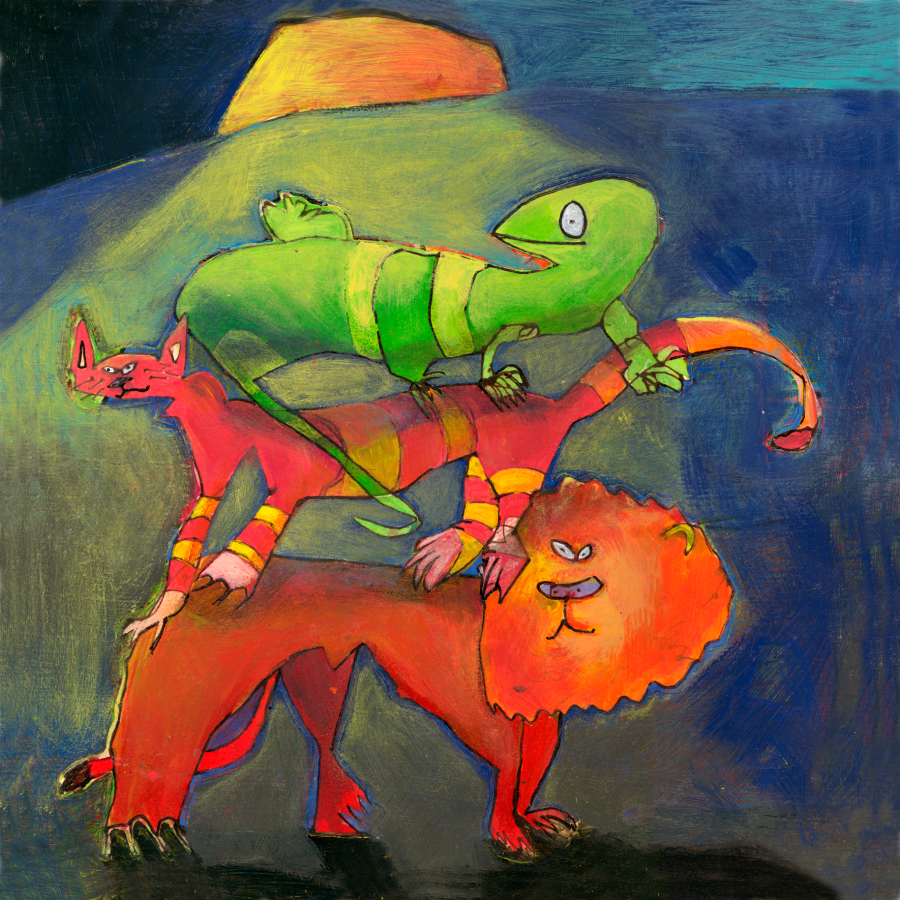
Memoir: I Went, Running
By Caroline Manring
Featured Art: Bird by Emmett Reese
. . .as if loss were a fire he was purified in again and again, until he wasn’t a ghost anymore.
–James Galvin, The Meadow
Running is the only thing that made sense to me after miscarrying at fifteen weeks pregnant. I had almost lost my own life as well, and spent three weeks in two different hospitals, linked by a trippy ambulance ride with an EMT who thought I couldn’t hear him singing along to U2. Pretty much everyone thought I was unconscious for much of my hospitalization. I wasn’t, of course, and between waves of Fentanyl I noted or hallucinated many searing moments, which, though warped by fear and pain, were still less bizarre than the daily life I had to get back to, eventually.
Even after I came home from the hospital, crying because I had to be wheeled out to the car, and even when I slept most of the day, propped on our eglantine couch with the help of ten or so lesser drugs, anything other than the thought of running again was absurd: people walking across the street? Ridiculous. They weren’t screaming. Sunsets? Ruthless. They ended everything, over and over and over. Someone else’s baby? An abrupt and tenacious violence; a violation of the possible, an extravagant body made radioactive by my pain, like a fur coat soaked with blood from a bucket I hurled myself.
Read More



